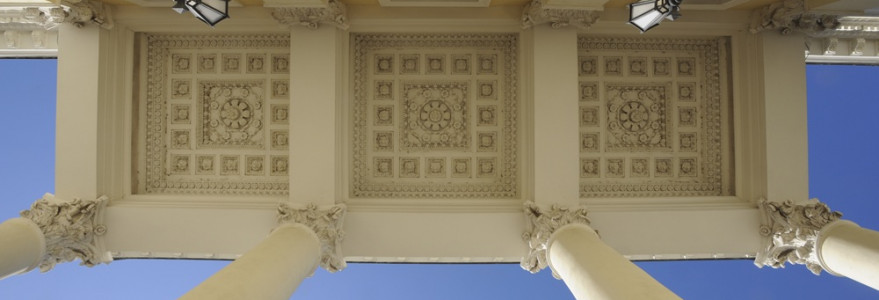Five researchers have been awarded grants under the Marie Skłodowska-Curie Actions Postdoctoral Fellowships 2024 to carry out their internship at the University of Warsaw. Two postdoctoral grants will be implemented at the Faculty of History, two at the Faculty of Physics and one at the Centre for New Technologies.
Marie Skłodowska-Curie Action Postdoctoral Fellowships are awarded by the European Commission. They can be applied for by individuals with significant scientific achievements who have obtained their doctoral degree up to eight years before.
Detailed information about the fellowship programme is available on the European Commission website >>.
In the 2024 edition, five researchers have been awarded grants and will carry out their internships at the University of Warsaw.
Sacred architecture and urban dynamics
Dr Katinka Sewing and Dr Nicola Holm will be pursuing fellowships at the UW’s Faculty of History. Dr Sewing will work on the project entitled The Missing Piece: Euphratesia as a Hub of Sacred Architecture within the Cultural Landscape of Late Antique Northern Syria. The researcher wants to study the sacred architecture of the province of Euphratesia (in present-day south-eastern Turkey). Based on an analysis of churches from the 4th to 7th century, the researcher will assess the significance of the region in the history of late antique Christian architecture and liturgy. Dr Holm will be undertaking the project The Urban Dynamics of Late Antique Antioch (270-438 CE) that aims to understand the relationship between the urban, ecclesiastical and imperial spheres of Late Roman Antioch.
Both researchers have been affiliated with the University of Warsaw for several years. Dr Katinka Sewing first came to Warsaw as a visiting professor as part of the 4EU+ programme, Dr Nicola Holm was a fellow at the Centre for Research on Ancient Civilisations (CRAC).
The projects for which the researchers received scholarships will be carried out in collaboration with Prof. Robert Wiśniewski from the UW’s Faculty of History.
Innovative projects in chemistry and physics
Dr Kaushik Chatterjee will carry out a theoretical chemistry research project at the UW’s Centre for New Technologies under the supervision of Dr Wojciech Skomorowski. The project, entitled Spectroscopic Profiling of Electron Resonances in Strongly Correlated Systems by MR-ADC, involves the development of a new method for modelling the properties of metastable states of atoms and molecules.
One of the scientific projects to be carried out at the UW’s Faculty of Physics is Optical formation of ground state ultracold tetratomic molecules. It will be carried out by Dr Bijit Mukherjee under the supervision of Prof. Michał Tomza. The project aims to propose a theoretical method for the production of ultracold tetrathomic molecules from an ultracold gas of two-atom molecules using a combination of electromagnetic fields, including a laser field. The results of the research could open the way to new applications in quantum simulations, accurate measurements and ultracold chemistry.
The second project at the UW’s Faculty of Physics, Magneto Plasmonic Assisted Room Temperature Valleytronic Transistor, will be carried out by Dr Wajid Ali. The project’s scientific supervisor is Prof. Maciej Molas. The aim of the research is to develop a novel valleytronic transistor. The new device will allow efficient generation, transmission and control of information at room temperature, which may contribute to a new generation of energy-efficient electronics.



